The NVIDIA Titan V Preview - Titanomachy: War of the Titans
by Ryan Smith & Nate Oh on December 20, 2017 11:30 AM ESTGaming Performance
Sure, compute is useful. But be honest: you came here for the 4K gaming benchmarks, right?
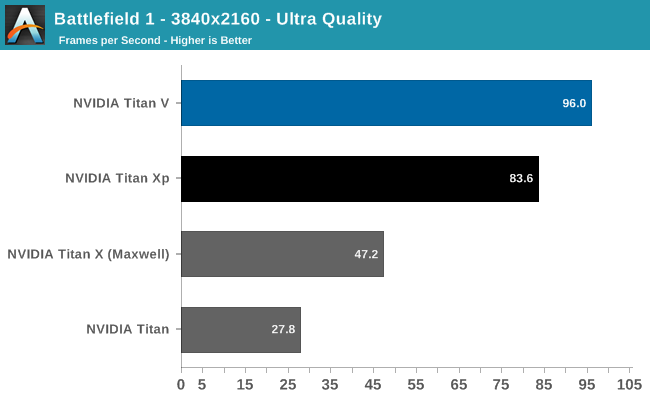
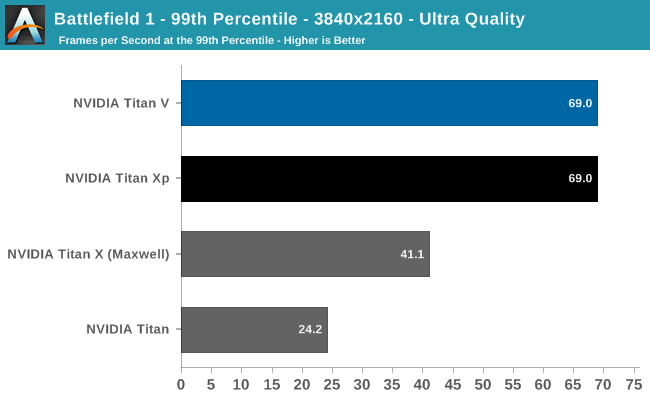
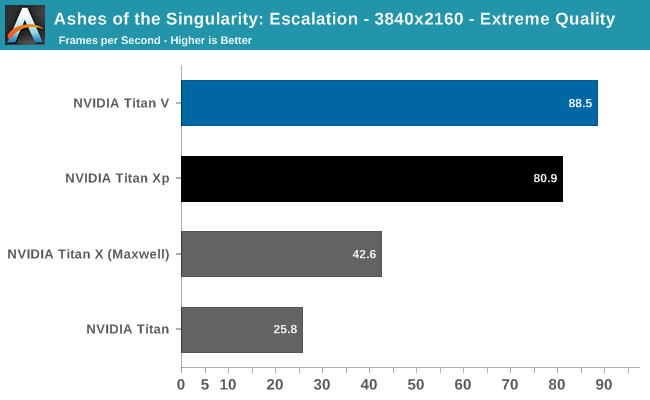
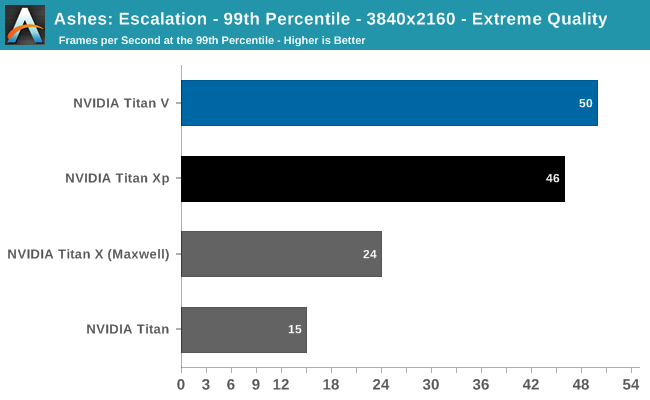
Already after Battlefield 1 (DX11) and Ashes (DX12), we can see that Titan V is not a monster gaming card, though it still is faster than Titan Xp. This is not unexpected, as Titan V's focus is quite far away from gaming as opposed to the focus of the previous Titan cards.
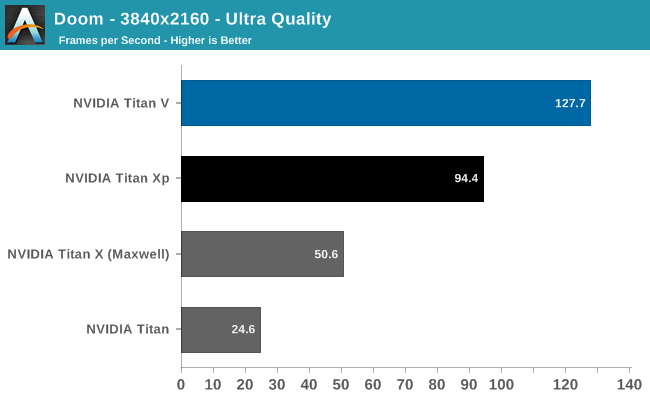
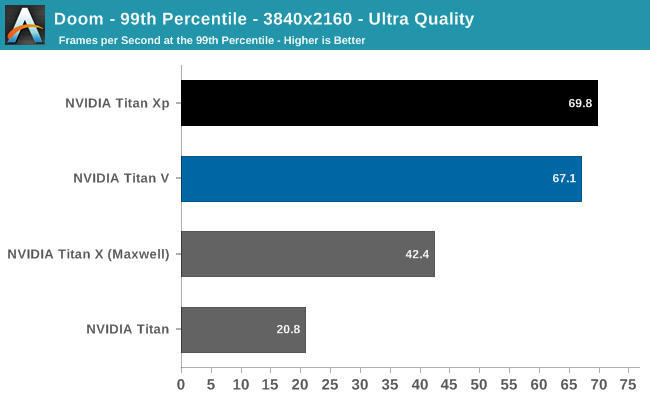
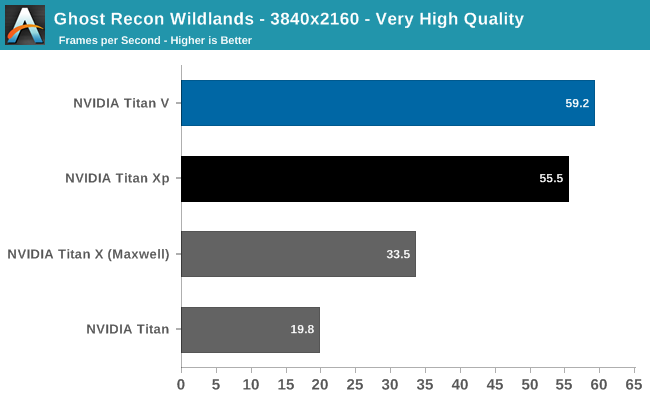
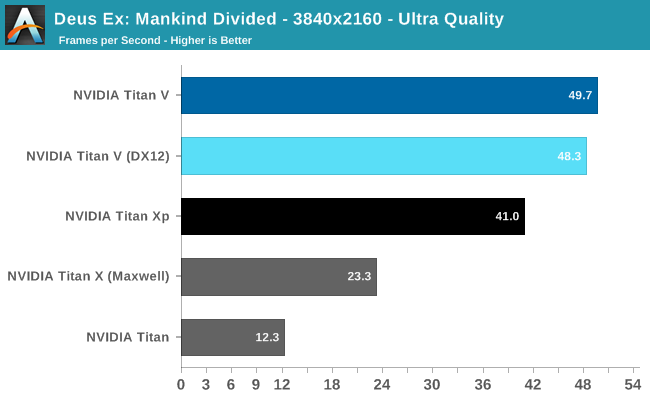
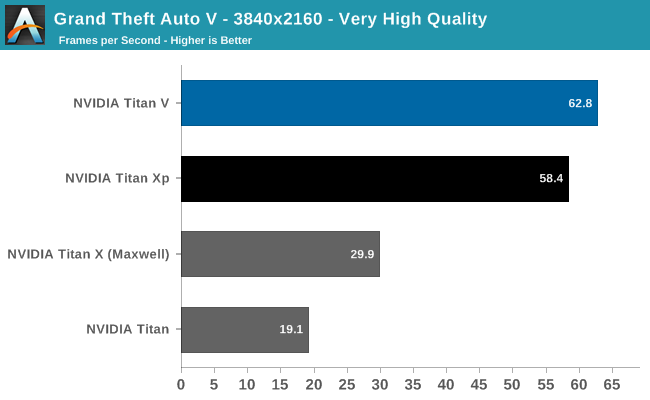
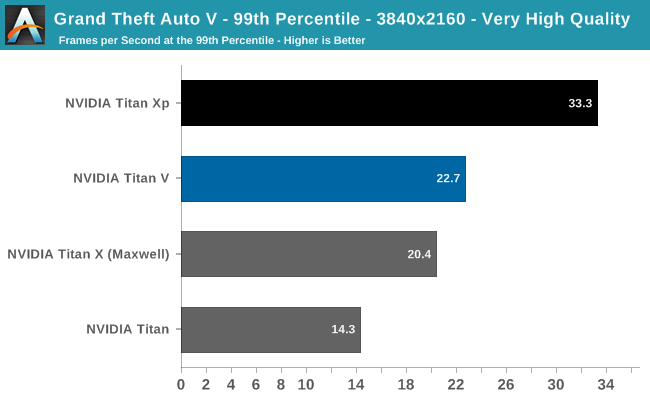
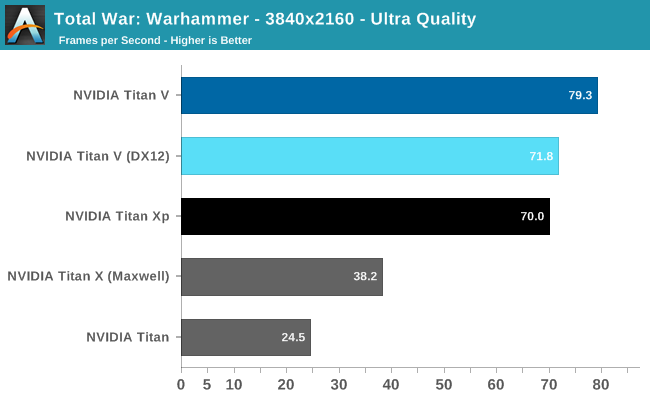
Despite being generally ahead of Titan Xp, it's clear Titan V is suffering from lack of gaming optimization. And for that matter, the launch drivers definitely have bugs in them as far as gaming is concerned. Titan V on Deus Ex resulted in small black box artifacts during the benchmark; Ghost Recon Wildlands experienced sporadic but persistant hitching, and Ashes occasionally suffered from fullscreen flickering.
And despite the impressive 3-digit FPS in the Vulkan-powered DOOM, the card actually falls behind Titan Xp in 99th percentile framerates. For such high average framerates, even a 67fps 99th percentile can reduce perceived smoothness. Meanwhile, running Titan V under DX12 for Deus Ex and Total War: Warhammer resulted in less performance. But with immature gaming drivers, it is too early to say if these are representative of low-level API performance on Volta itself.
Overall, the Titan V averages out to around 15% faster than the Titan Xp, excluding 99th percentiles, but with the aforementioned caveats. Titan V's high average FPS in DOOM and Deus Ex are somewhat marred by stagnant 99th percentiles and minor but noticable artifacting, respectively.
So as a pure gaming card, our preview results indicate that this would not the best gaming purchase at $3000. Typically, a $1800 premium for around 10 - 20% faster gaming over the Titan Xp wouldn't be enticing, but it seems there are always some who insist.










111 Comments
View All Comments
mode_13h - Wednesday, December 27, 2017 - link
It's true. All they had to do was pay some grad students to optimize HPC and deep learning software for their GPUs. They could've done that for the price of only a couple marketing persons' salaries.CiccioB - Monday, January 1, 2018 - link
That would not be a surprise.AMD strategy on SW support has always been leaving others (usually not professionist) do the job at their own cost. Results is that AMD HW has never had a decent SW support other than for gaming (and that's only because Sony and MS spend money for improving gaming performances for their consoles).
tipoo - Friday, December 22, 2017 - link
Sarcasm? There's no Vega built up to this scale.mode_13h - Wednesday, December 27, 2017 - link
It *is* pretty big and burns about as much power. Yet, it's nowhere near as fast at deep learning. Even with its lower purchase price, it's still not operationally cost-competitive with GV100.If you look at its feature set, it was really aimed at HPC and deep learning. In the face of Volta's tensor cores, it kinda fell flat, on the latter front.
Keermalec - Wednesday, December 20, 2017 - link
What about mining benchmarks?tipoo - Friday, December 22, 2017 - link
Would be in line with the CUDA improvements. I.e, two 1080s would be much better at mining. Most of the uplift is in tensor performance, which no algo uses.Cryio - Wednesday, December 20, 2017 - link
Wait wait wait.Crysis Warhead at 4K, Very High with 4 times Supersampling? I think you mean Multisampling.
I don't think this could manage 4K60 at max settings with 4xSSAA, lol.
Ryan Smith - Thursday, December 21, 2017 - link
"I think you mean Multisampling."Nope, supersampling.=)
mode_13h - Wednesday, December 27, 2017 - link
Tile rendering FTMFW.Kevin G - Wednesday, December 20, 2017 - link
"For our full review hopefully we can track down a Quadro GP100"YES. The oddity here is that the GP100 might end up being better than the Titan V at gaming due to having 128 ROPs vs. 96 ROPs and even higher memory bandwidth.
Outside of half precision matrix multiplication, the GP100 should be roughly ~43% faster due mainly to the difference in ALU counts in professional workloads. Boost clocks are a meager 25 Mhz difference. Major deviations beyond that 43% difference would be where the architectures differ. There is a chance benchmarks would come in below that 43% mark if memory bandwidth comes into play.